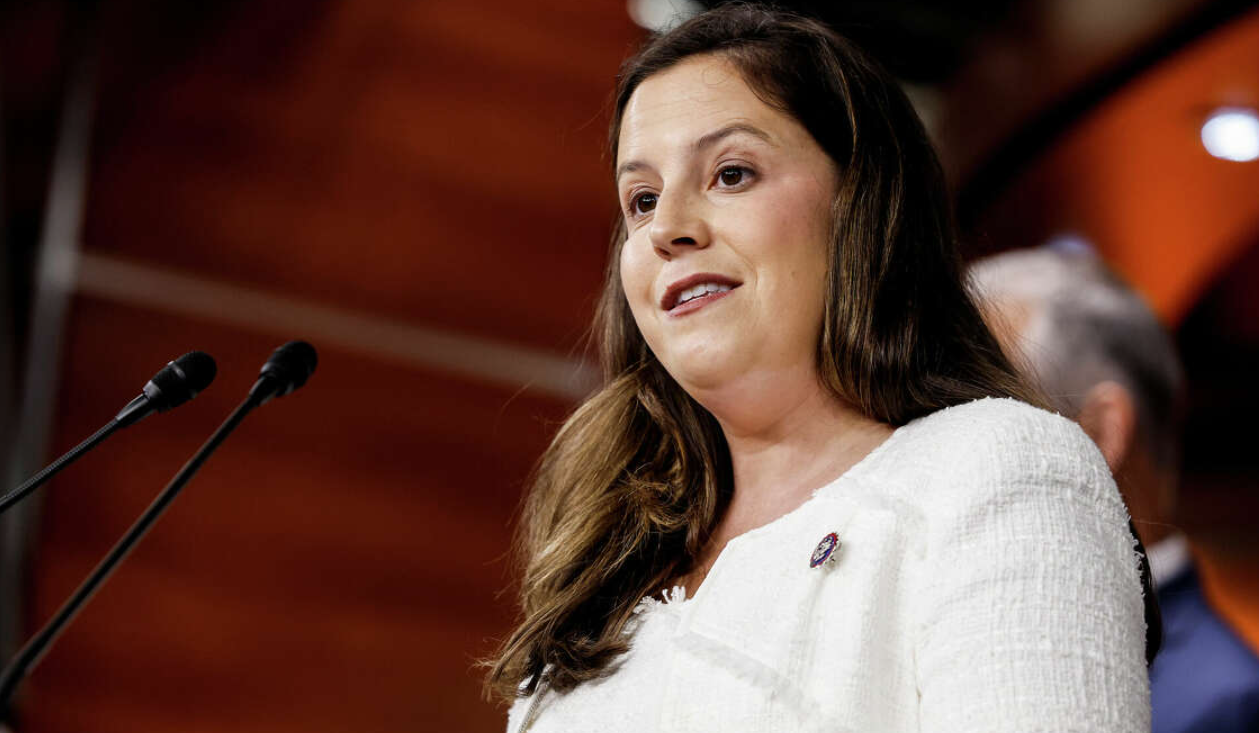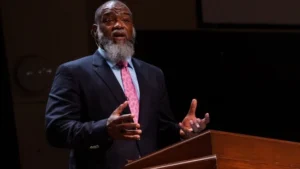President Trump Withdraws Elise Stefanik’s UN Ambassador Nomination to Safeguard GOP House Majority
In a strategic move to preserve Republican control of the House, President Donald Trump has withdrawn Rep. Elise Stefanik’s nomination for U.S. ambassador to the United Nations. This decision underscores the critical importance of maintaining legislative power as the GOP navigates a narrowly divided Congress.
Why Did Trump Withdraw Stefanik’s Nomination?
President Trump’s decision to withdraw Elise Stefanik’s nomination as U.N. ambassador is rooted in political strategy. The Republican Party holds a razor-thin majority in the House of Representatives, and losing Stefanik’s seat could weaken their ability to pass key legislation.
Stefanik, a high-profile Trump ally, plays a pivotal role in shaping conservative policies. If she left Congress, the GOP would risk losing her seat in a special election, making it even harder to push forward Trump-backed policies such as tax cuts, border security measures, and judicial appointments.
Key Factors Behind the Withdrawal
| Factor | Explanation |
|---|---|
| Republican Majority at Risk | With a slim 218-213 majority, every seat is crucial for passing legislation. |
| Upcoming Special Elections | The GOP faces a challenge in upcoming elections, particularly in Florida, where another vacant seat could tilt the balance. |
| Legislative Priorities | Stefanik’s continued presence strengthens the party’s ability to pass conservative laws and counter Democratic policies. |
| Party Leadership Stability | As a key Republican figure, Stefanik’s leadership helps maintain unity within the party. |
Political Impact: How Does This Decision Shape the GOP’s Future?
Keeping Stefanik in Congress allows the Republican Party to focus on upcoming legislative battles without risking their control over the House. With midterm elections on the horizon, maintaining every possible seat is vital.
How Stefanik Strengthens the GOP
- Legislative Power: Her vote ensures the GOP can pass or block critical bills.
- Trump’s Political Strategy: Trump is prioritizing party strength over individual appointments.
- Election Preparation: The GOP is focused on winning more seats rather than risking losses in special elections.
- Key Policy Support: Stefanik has been instrumental in supporting Trump’s border policies and economic strategies.
The decision highlights how the Republican leadership is focused on long-term gains rather than short-term appointments. Speaker Mike Johnson praised the move, emphasizing that Stefanik’s role is essential to maintaining stability within Congress.
Who Will Be the Next UN Ambassador?
Trump’s withdrawal of Stefanik’s nomination leaves an open question: Who will fill the vacant U.N. ambassador role? The administration is reportedly considering candidates with strong foreign policy credentials.
Some possible contenders include:
- Ric Grenell – Former U.S. Ambassador to Germany and previous Acting Director of National Intelligence.
- Kelly Craft – Former U.S. Ambassador to the United Nations under Trump.
- Robert O’Brien – Former National Security Adviser with extensive diplomatic experience.
The next ambassador will be crucial in representing America’s stance on international relations, particularly regarding China, Russia, and the Middle East.
Why This Move Matters for 2026 and Beyond
The decision to keep Stefanik in Congress is not just about the present—it’s about securing the future of the Republican Party. With the 2026 midterms approaching, every seat will be a battleground.
How This Decision Benefits the GOP Long-Term
- Prepares for 2026 Elections – Ensures a stronger GOP presence for upcoming elections.
- Strengthens Legislative Influence – Helps pass policies crucial for the party’s platform.
- Maintains Party Unity – Keeps a strong leadership team intact.
- Strategic Candidate Placement – Allows the party to carefully choose the next U.N. ambassador without losing a key congressional seat.
By keeping Stefanik in Congress, Trump is ensuring that the Republican Party stays well-positioned to retain and even expand its influence.
Conclusion
President Trump’s decision to withdraw Elise Stefanik’s U.N. nomination is a calculated strategy aimed at maintaining Republican control in Congress. With the GOP holding only a slight majority, every seat plays a crucial role in legislative battles.
Key Takeaways:
- Trump’s decision ensures legislative stability for the GOP.
- Stefanik’s leadership strengthens the Republican agenda.
- The move is part of a larger 2026 election strategy.
- A new U.N. ambassador candidate will be selected soon.
By prioritizing congressional stability over diplomatic appointments, Trump has demonstrated a commitment to keeping the Republican Party in a position of power leading into the next election cycle.
[USnewsSphere.com / CNN]





